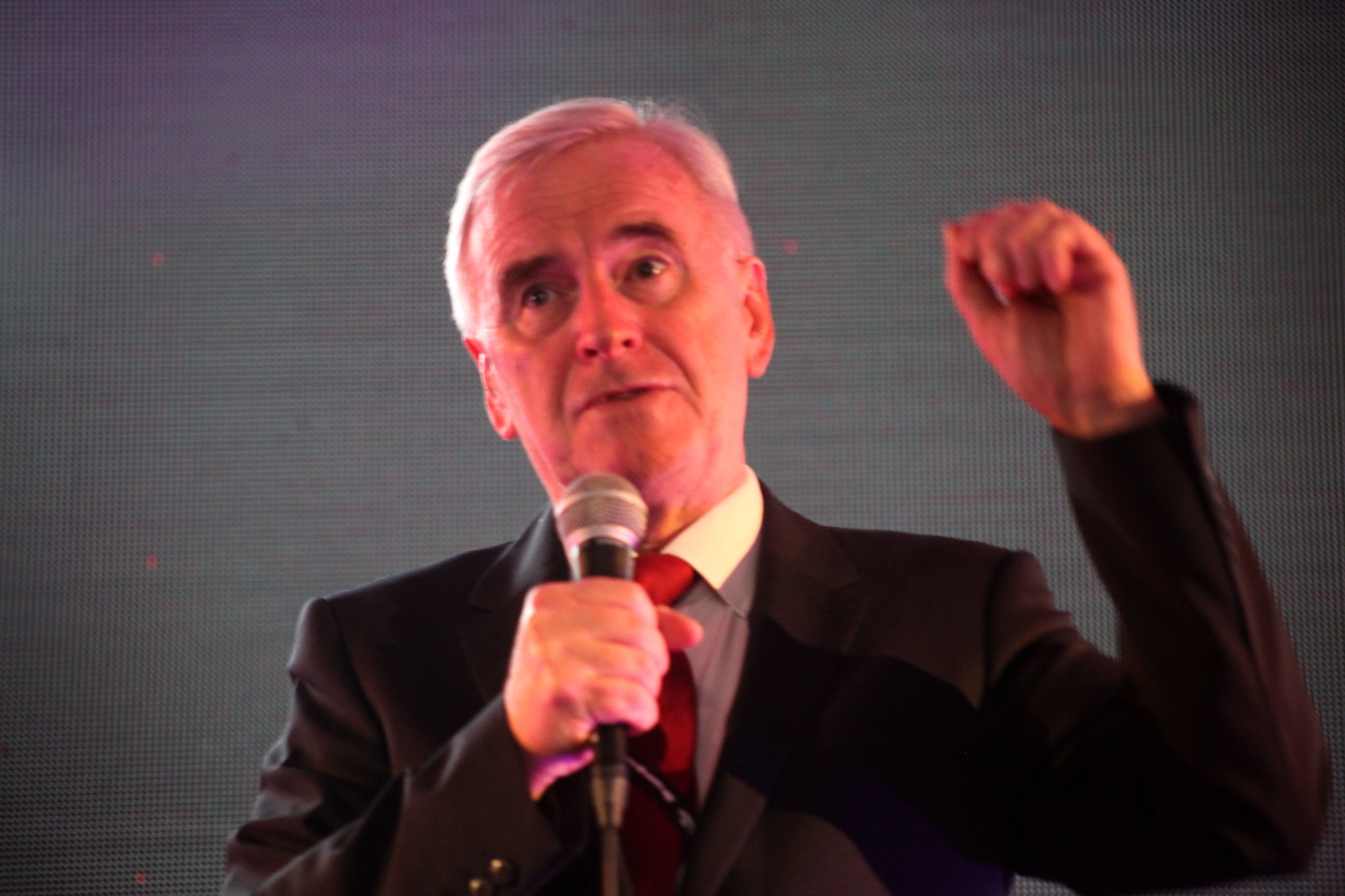Movin’ On Up: It’s Time to Break Neoliberalism’s Share-Owning Oligarchy
by James Meadway
21 April 2019

There were squeals of excitement this week as dividends paid from UK companies soared to giddy new heights. Over £19bn has been paid out in the first three months of the year, with forecasts for a record-breaking £100bn delivered to shareholders by the end of the year.
Yet this glut for company owners has appeared whilst wages for all but the top are near-flat or falling, investment (already low) has slumped and productivity growth – the secret engine of capitalism, propelling the system onwards – has been the worst of the major developed economies in the decade since the crash. Larger companies are hoarding immense piles of cash, reaching nearly £700bn in the last year, whilst the smaller firms – just like households – are pushed deeper into debt, simply to stand still.
This is, in no sense, an economy that is working as we are told it should.
The truth is that a low-investment, low-pay economy is going to resemble more and more a zero sum game: in other words, a situation where for one side to win, the other side must lose. And with trade unions hollowed out, rights at work stripped to the bone, and new and more insidious forms of control introduced across the economy, the losers are going to be all those who make a living from working, rather than from owning. It means that the proceeds of such growth as there is will fall mostly to those at the top, just as we have seen over the last decade in Britain, where (low) economic growth has been matched by flat or falling real wages and salaries alongside harsh austerity cuts.
Moreover, the incentives for those who do own the wealth in these circumstances starts to skew heavily towards living off property and relying on cheap labour, rather than delivering the investment in technology and skills that capitalism is supposed to. This is, increasingly, a rentier economy – one dominated by various forms of rent-seeking, rather than the production of new wealth.
‘Popular capitalism’ was always a myth: in the rhetoric of neoliberalism, privatisation, the undermining of trade unions, and the removal of taxes on wealth and higher incomes was supposed to unleash a great tidal wave of mass, democratic company ownership. Yet the majority (54%) of shares in UK listed companies are now held overseas. Only 12% of shares are now owned by individuals, down from 54% in 1963. Overwhelmingly, of course, these shares are held by the wealthy. Meanwhile, pension funds – that supposed route to mass share ownership – now hold just 3% of UK listed shares and, again, pension wealth remains concentrated in the upper end of the spectrum.
Far from producing a ‘share-owning democracy’, neoliberalism since the 1980s has produced the very opposite: a share-owning oligarchy, with major funds like BlackRock and offshore holdings controlling mindblowing shares of society’s wealth. Our productive potential is locked up inside the companies owned by these shareholders, far removed from democratic control, and with few incentives for owners or managers to pay attention to the interests of wider society.
A transformation in how society’s wealth is owned and managed is needed. Labour’s programme includes the renationalisation of those public assets sold off in the great privatisation waves of the 1980s and 1990s. These accounted for an astonishing 40% of all assets privatised across the developed world between 1980 and 1996: an incredible – and damaging – smash-and-grab raid on social wealth. But as well as bringing utilities, railways and the post office back into public hands under democratic management and control, the programme is looking to create new, democratic forms of ownership for the productive wealth of society.
The mechanism for doing so is the Inclusive Ownership Funds, announced by the shadow chancellor, John McDonnell, in last year’s Labour party conference speech. The policy is deceptively simple: each year, companies employing 250 or more workers (covering 11m people) will transfer just 1% of their shares into a collective pot for each firm, the Inclusive Ownership Fund, to be held and owned collectively by that firm’s workers, up to a 10% stake. But the effects are dramatic: instead of those record dividends going entirely to shareholders whilst workers see their wages fall, each worker will be entitled – now as a shareholder – to a part of those dividends. This means putting money directly into the pockets of employees, after year upon year of seeing their pay fall behind price rises – up to a maximum payment currently set at £500.
But it’s not just the £4bn boost to workers’ earnings from these dividend payments. It’s the radical principle behind the scheme, which takes the logic of Thatcher’s ‘Right to Buy’ sale of council housing and flips it on its head. Even a 10% share would give the workforce the largest single shareholding in almost any current major UK company. With the voting rights shareholdings guarantee, workers would have a real collective, democratic voice in the companies they work for. And that 10% collective stake can act as powerful guard against hostile takeovers and the short-term thinking that dominates current corporate decision-making. It would represent a transformation in how large businesses in Britain are owned and operated, breaking 40 years or more of a failed belief in the primacy of ‘shareholder value’, and opening the route to putting the wealth of society back into the hands of those who produce it.